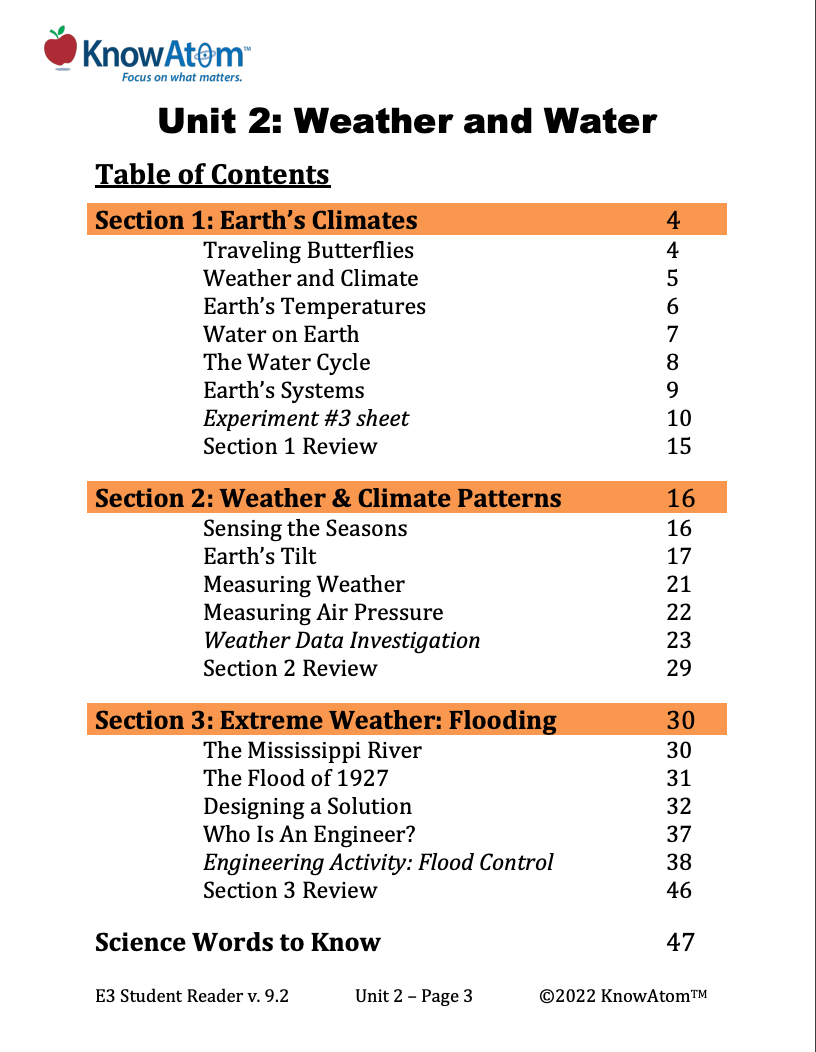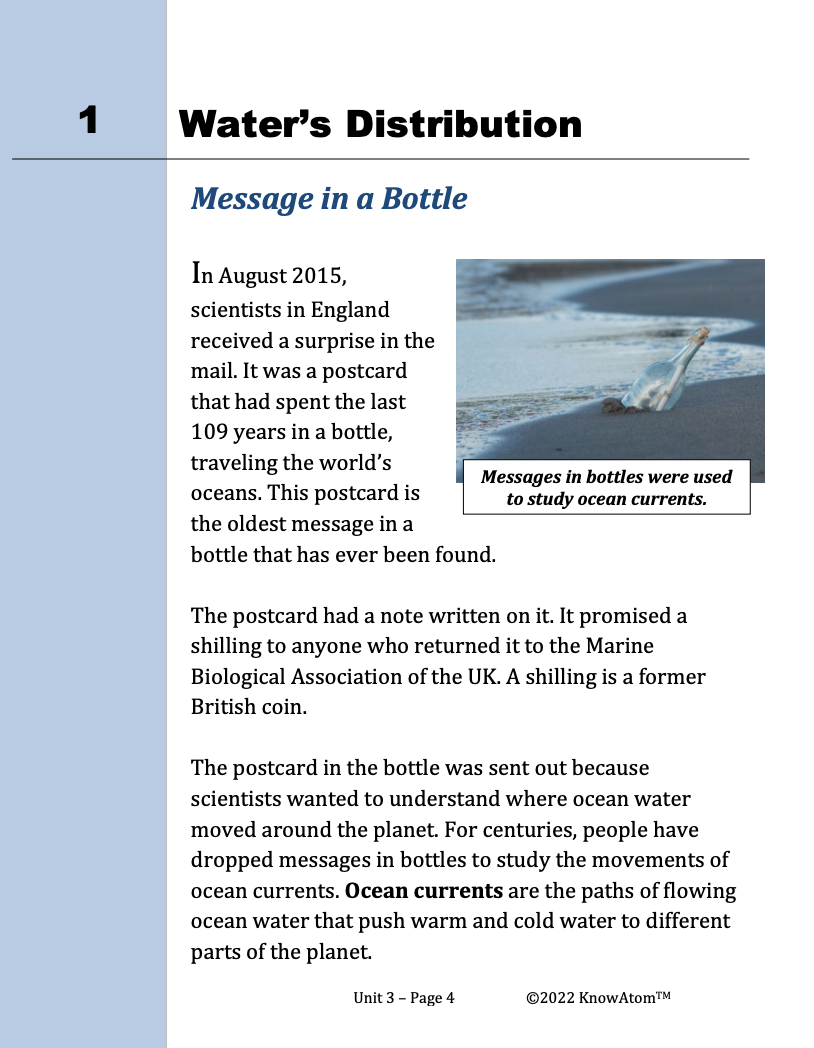
In this unit, students discover how the sun provides light and heat to Earth and how the water cycle influences weather and climate. Students analyze weather patterns in specific regions during a particular season. They then use that knowledge to study the effects of extreme weather on humans, evaluating solutions to protect against those effects.

In this unit, students figure out phenomena of Earth’s interacting systems, focusing on how the hydrosphere interacts with and is influenced by the other systems. In this lesson, students apply their scientific knowledge of Earth’s water system to engineer water filtration devices to figure out how to reduce the impacts of water pollution on the environment. This page provides an overview of key aspects of this lesson.
Standards citation: NGSS Lead States. 2013. Next Generation Science Standards: For States, By States. Washington, DC: The National Academies Press. Neither WestEd nor the lead states and partners that developed the Next Generation Science Standards were involved in the production of this product, and do not endorse it.
